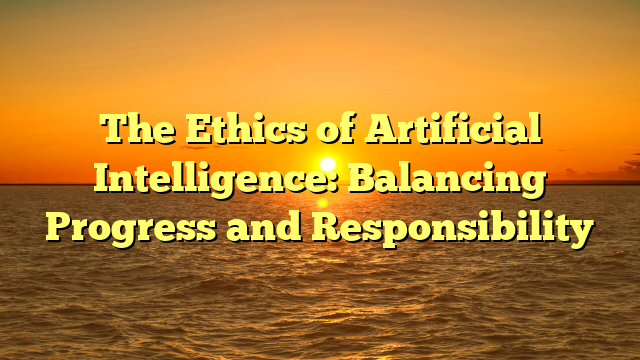Artificial Intelligence (AI) has become one of the most influential technologies of our time, driving innovation in healthcare, finance, education, and entertainment. Yet, as AI systems grow otpklik more powerful, ethical questions about fairness, accountability, and human values are increasingly coming to the forefront.
One major ethical concern is bias in AI algorithms. Since these systems learn from existing data, they can replicate and even amplify societal inequalities. For example, biased training data has led to hiring algorithms that favor certain demographics or facial recognition systems that misidentify minorities. Addressing bias requires careful dataset selection, transparency, and ongoing oversight.
Privacy is another critical issue. AI thrives on data, but collecting and analyzing massive amounts of personal information risks violating individual rights. Social media platforms, for instance, use AI to predict user behavior and deliver targeted ads, sparking debates about consent and surveillance. Stronger data protection laws and ethical design principles are needed to safeguard privacy.
Accountability also raises tough questions. When an AI system makes a mistake—whether in diagnosing a patient or driving an autonomous car—who is responsible? Developers, companies, and regulators must work together to establish frameworks that assign accountability while encouraging innovation.
There are also concerns about job displacement. As AI automates tasks in industries ranging from manufacturing to customer service, millions of workers may face unemployment or the need to retrain. Governments and businesses must collaborate to support reskilling programs and ensure economic transitions are fair.
Looking further ahead, debates about “superintelligent AI” highlight the importance of aligning advanced systems with human values. While such scenarios remain speculative, researchers argue that building safeguards early is crucial to prevent unintended consequences.
In conclusion, the ethics of Artificial Intelligence cannot be an afterthought. Balancing technological progress with responsibility is essential for creating systems that serve humanity equitably. Through transparent design, regulation, and global collaboration, AI can fulfill its promise without compromising ethical standards.
